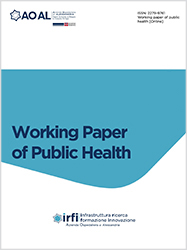The Impact of Presumed Consent Law on Organ Donation: An Empirical Analysis from Quantile Regression for Longitudinal Data
Submitted: 18 July 2016
Accepted: 18 July 2016
Published: 15 June 2012
Accepted: 18 July 2016
Abstract Views: 927
PDF: 2257
Publisher's note
All claims expressed in this article are solely those of the authors and do not necessarily represent those of their affiliated organizations, or those of the publisher, the editors and the reviewers. Any product that may be evaluated in this article or claim that may be made by its manufacturer is not guaranteed or endorsed by the publisher.
All claims expressed in this article are solely those of the authors and do not necessarily represent those of their affiliated organizations, or those of the publisher, the editors and the reviewers. Any product that may be evaluated in this article or claim that may be made by its manufacturer is not guaranteed or endorsed by the publisher.
Supporting Agencies
Balbinotto Neto, G., Nunes da Silva, E., & Katarina Campelo, A. (2012). The Impact of Presumed Consent Law on Organ Donation: An Empirical Analysis from Quantile Regression for Longitudinal Data. Working Paper of Public Health, 1(1). https://doi.org/10.4081/wpph.2012.6769
PAGEPress has chosen to apply the Creative Commons Attribution NonCommercial 4.0 International License (CC BY-NC 4.0) to all manuscripts to be published.

 https://doi.org/10.4081/wpph.2012.6769
https://doi.org/10.4081/wpph.2012.6769




